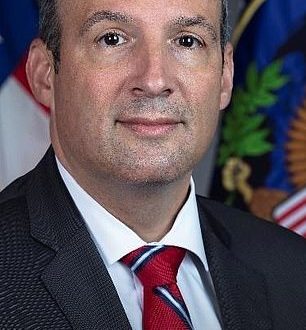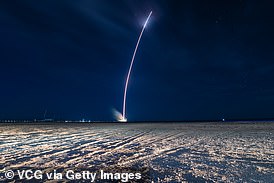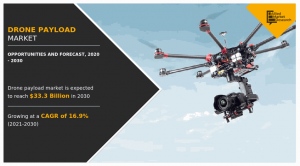Intelligence officials on Friday issued new warnings about China’s ambitions, saying it was collecting genetic data from around the world as part of a technological push that could give it a decisive military edge and dominance over the American healthcare sector.
A report by the National Counterintelligence and Security Center painted an alarming picture of the risks for businesses and universities in accepting Chinese investment or offers of expertise.
It is the latest in a series of forecasts that the U.S. risks being left behind as China forges ahead with research.
Edward You, the center’s officer for emerging and disruptive technologies, pointed out that Chinese companies were investing in U.S. and European biotechnology and pharmaceutics.
They were also offering genetic testing and COVID-19 test kits, he said, gathering data that could ultimately end up in Beijing’s hands.
With its data collection and advancements in technology, Beijing could one day be dominant in health care and leave the U.S. wholly dependent on China, he said.
‘If you’re President Xi,’ he said, ‘that’s the gift that keeps on giving.’
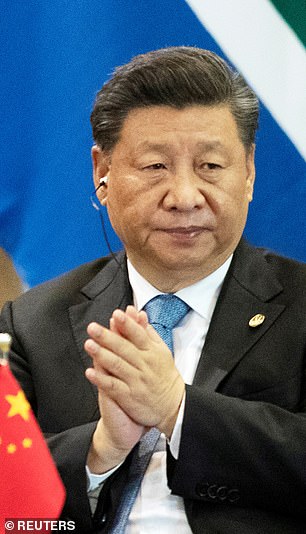
Michael Orlando (l), head of the National Counterintelligence and Security Center, said the U.S. ‘can’t afford to lose ground’ to China as he warned of threat posed by Xi Jinping’s regime

China has embarked on building a global genetic database and Chinese-linked companies are selling DNA test kits which officials warn could give data to the Chinese Communist Party
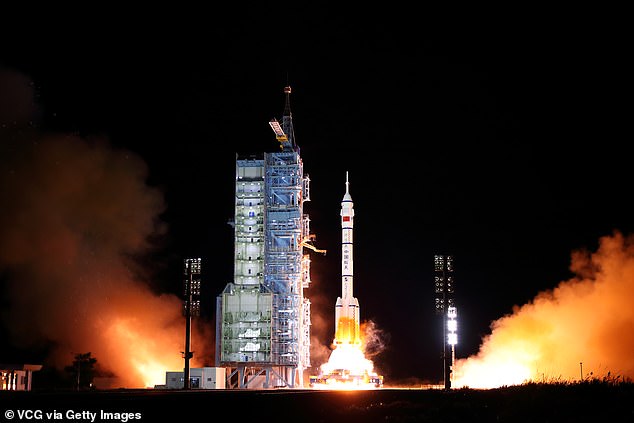
China used a Long March-2F rocket, like the one seen here launching in October, to test a nuclear capable hypersonic missile, according to reports
The counterintelligence center’s acting director, Michael Orlando, told reporters that the U.S. ‘can’t afford to lose’ ground to China in several key areas: artificial intelligence, autonomous systems, quantum computing, semiconductors and biotechnology.
He said Chinese businesses and academics were required to serve the interests of the Chinese Communist Party.
‘Although we’ve been saying this for year after year, people are not digesting this,’ he said.
The warning comes soon after reports that China tested a hypersonic missile and after key Pentagon officials left their posts saying they feared the U.S. was being left behind.
The new report details threats against the private sector in particular.
American officials have repeatedly warned that China was closing the gap on areas like A.I.
Those warnings intensified this week when it emerged that it had tested a hypersonic missile, using a type of technology that can evade early warning systems.
Orlando added that quantum computing was an area where the U.S. had to ensure that American companies were not unwittingly helping China develop technologies that could break encryption systems used by intelligence agencies.
Last week the top Pentagon official in charge of overseas arms sales announced she was leaving a day after warning that U.S. limits on sharing technology had allowed strategic rivals to corner the market in selling military hardware to the Middle East.
Although Heidi Grant did not mention China by name in her remarks to the Association on Tuesday, she did not need to.
Her resignation came days after the Pentagon’s first chief software officer said he resigned because he could not bear to watch China overtake the U.S.
The departures come with tensions high between Washington and Beijing, with both sides jockeying over the status of Taiwan.
Grant’s departure was announced with a notice on the Defense Security Cooperation Agency website, saying she ‘had been considering this transition for some time.’
A day earlier she warned that the U.S. needed to consider whether blocking arms sales to allies would leave the market to ‘strategic competitors.’
‘We have to look at this and say, if we’re not there, our strategic competition is going to fill the void,” she said, according to Defense One. ‘And is that riskier than transferring our high-end technologies?’
Grant, the first civilian to lead the agency, referred specifically to controversy over arms sales to Jordan, Saudi Arabi and the United Arab Emirates.


Heidi Grant said she was stepping down as director of the Defense Security Cooperation Agency a day after warning that U.S. arms sales policy had let China gain influence in the Middle East. It comes after Nicolas Chaillan said he resigned as the Pentagon’s first chief software officer because he could not stand watching China overtake the U.S.
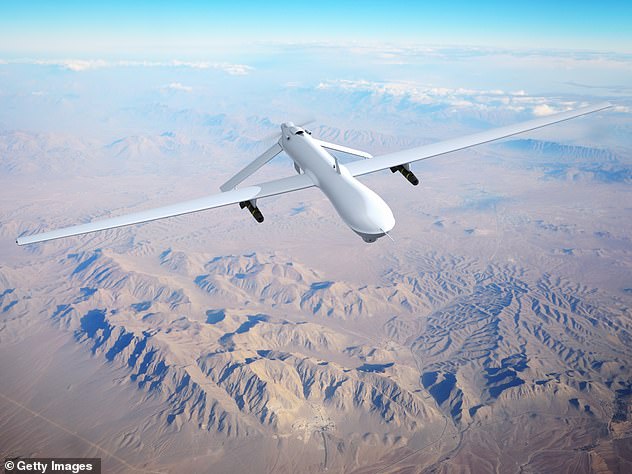
Before President Trump eased restrictions, the sale of large drones was generally limited to close NATO allies under the terms of the international Missile Technology Control Regime.
The incoming Biden administration ordered a review of sales authorized by the Trump administration amid concerns they might be used in Yemen, where air strikes have been blamed for civilian deaths.
Before Trump, the sale of large drones, such as the MQ-9 Reaper, had generally been limited to close allies such as NATO members France and the U.K. under the terms of the international Missile Technology Control Regime.
‘Our policies of the time were, we’re not going to transfer that technology,’ said Grant.
‘So guess what? Our strategic competitor transferred that technology, and have a significant footprint of training bases for unmanned [drones] in Jordan, Saudi Arabia, UAE.
‘It could have been us, we could be there, we could be training and advising, have that access.’
A Pentagon spokesperson told DailyMail.com her departure had been in the works before her remarks.
‘Director Grant’s retirement announcement is in no way connected to her AUSA conference panel comments,’ said Michael Howard.
The rise of Chinese sales to the region was spelled out by the Stockholm International Peace Research Institute in a report earlier this year.
Although global arms sales leveled off, transfers from China to to Saudi Arabia and the UAE more than doubled from 2011-2015 to 2015-2020.
Grant’s departure came days after it emerged that another senior official had quit over concerns that China was leapfrogging the U.S. in military technology.
Nicolas Chaillan told the Financial Times he left because of the slow pace of technological transformation in the U.S. armed forces.
‘We have no competing fighting chance against China in 15 to 20 years. Right now, it’s already a done deal; it is already over in my opinion,’ said Chaillan, who spent three years on a Pentagon-wide effort to improve cyber security.
He said Beijing was on its way to global dominance because of its advances in artificial intelligence, cyber capabilities and machine learning.
Those were more important, he added, than new hardware such as the F-35 warplane.
In contrast, he described cyber defenses in some government department as ‘kindergarten level.’
 Unmanned Aerial Vehicle The latest drone news
Unmanned Aerial Vehicle The latest drone news
